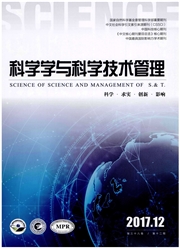

 中文摘要:
中文摘要:
基于人—环境匹配理论和期望理论的视角,探讨过度胜任感对角色内绩效和创新绩效的影响机制和边界条件。采用167份员工自我报告和主管报告的配对数据,应用有中介的调节作用的检验方法,结果表明,过度胜任感不能显著负向影响角色内绩效,但能显著正向影响创新绩效。地位与独立价值观在过度胜任感与创新绩效关系间发挥调节作用,地位与独立价值观的调节作用部分通过工作投入的中介实现。如果员工具有较高地位与独立价值观,过度胜任感直接正向和间接通过工作投入的中介正向影响创新绩效;如果员工具有较低地位与独立价值观,过度胜任感直接负向和间接通过工作投入的中介负向影响创新绩效。
 英文摘要:
英文摘要:
Building on person-environment fit theory and expectancy theory, we unraveled the impact of perceived overqualification on employee performance and boundary conditions. Using 167 self-rated and supervisor-rated pairing data, and drawing on a mediated moderation model, we found that perceived overqualification was not significantly related to supervisor-rated in-role performance, but had a positive effect on supervisor-rated creative performance. Status and independence value moderated the relationship between perceived overqualification and the work engagement and the indirect relationship between perceived overqualification and creative performance. If an employee has a higher status and independence value, perceived overqualification have a positive impact on creative performance through the mediation of work engagement; if an employee has a lower status and independence value, perceived overqualification have a negative impact on creative performance through the mediation of work engagement.
 同期刊论文项目
同期刊论文项目
 同项目期刊论文
同项目期刊论文
 期刊信息
期刊信息
